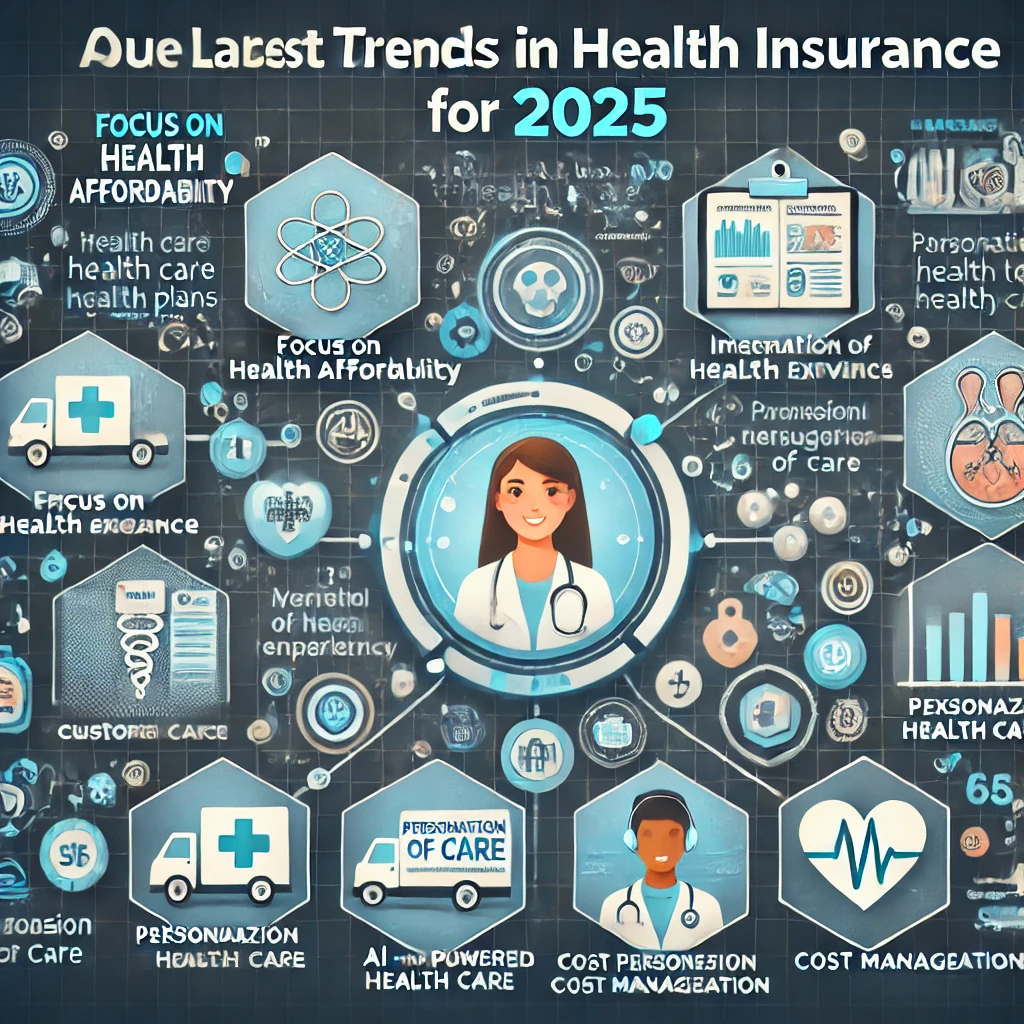As artificial intelligence (AI) continues to transform healthcare, many are wondering whether health insurance policies will begin covering AI-driven medical treatments. AI technologies are becoming increasingly integrated into medical diagnosis, treatment planning, and even patient care, offering new possibilities for more personalized and efficient healthcare. But what does this mean for health insurance coverage in 2025? In this article, we will explore the potential for health insurance to cover AI-driven treatments, the challenges involved, and what you can expect in the near future.
Table of Contents
- Introduction to AI in Healthcare
- How AI is Revolutionizing Medical Treatments
- The Role of AI in Diagnosis and Treatment Planning
- Will Health Insurance Cover AI-Driven Treatments?
- Challenges to Coverage of AI Treatments
- Regulations and Legal Considerations for AI in Healthcare
- What to Expect from AI Coverage in 2025
- Conclusion
1. Introduction to AI in Healthcare
Artificial intelligence refers to the simulation of human intelligence in machines that are programmed to think and learn like humans. In healthcare, AI is increasingly being used to analyze medical data, provide personalized treatment recommendations, and even assist in surgeries. As AI technology becomes more advanced and integrated into medical practice, the question of whether health insurance policies will cover AI-driven treatments is becoming more pressing.
The Rise of AI in Medicine
AI has already shown its potential in various areas of healthcare, such as:
- Medical Imaging: AI algorithms are used to analyze radiology images, detecting early signs of diseases like cancer and neurological disorders.
- Predictive Analytics: AI models help predict patient outcomes, readmission risks, and treatment responses by analyzing data from electronic health records (EHRs).
- Robotic Surgery: AI-driven robotic systems assist surgeons in performing complex procedures with greater precision and less risk.
- Drug Development: AI is being used to accelerate the discovery of new medications and vaccines.
These developments raise important questions about the role of AI in medical treatments and whether health insurance providers will cover these AI-driven innovations.
2. How AI is Revolutionizing Medical Treatments
AI’s impact on medical treatments is vast and far-reaching, including but not limited to:
a. Personalized Medicine
AI has the potential to revolutionize personalized medicine by using large datasets to tailor treatments to individual patients based on their genetics, medical history, and lifestyle. This can lead to more effective treatments with fewer side effects, and it is anticipated that AI-driven personalized care will become more common in the coming years.
b. Automation in Surgery
AI-driven robotic surgery systems, such as the da Vinci Surgical System, assist doctors in performing minimally invasive surgeries with greater precision, leading to faster recovery times and fewer complications. As these systems evolve, they may become more integral to surgery, making it crucial to determine whether insurance will cover them.
c. AI-Enhanced Diagnostics
AI algorithms can analyze medical images with remarkable accuracy, often detecting conditions such as cancer, heart disease, and neurological disorders earlier than traditional methods. In 2025, AI-enhanced diagnostic tools will likely play an increasingly central role in both preventive care and early detection of diseases.
d. Virtual Health Assistants and Chatbots
AI-driven virtual assistants are being deployed to provide immediate responses to medical questions, assist with appointment scheduling, and guide patients through their treatment plans. These AI tools can reduce wait times and improve the efficiency of healthcare services.
3. The Role of AI in Diagnosis and Treatment Planning
AI’s role in diagnosis and treatment planning is becoming increasingly significant. Here are a few ways AI is used:
a. Diagnostic Assistance
AI-powered diagnostic tools, such as image recognition software, can help doctors detect abnormalities in medical scans like X-rays, MRIs, and CT scans. For example, AI has been used to detect breast cancer in mammograms with higher accuracy than human radiologists.
b. Treatment Recommendation Systems
AI systems analyze a patient’s medical data to recommend personalized treatment options based on similar cases, medical guidelines, and the patient’s unique characteristics. These systems can help doctors make more informed decisions, especially in complex cases.
c. Precision Medicine
AI has the ability to process vast amounts of genetic data, helping doctors choose the most effective treatments for patients based on their individual genetic makeup. This precision medicine approach could greatly improve the outcomes of cancer therapies, for example.
4. Will Health Insurance Cover AI-Driven Treatments?
As AI technologies continue to evolve and become integral to medical care, health insurance providers will likely be required to assess how they incorporate these treatments into their coverage options. However, whether AI-driven medical treatments will be covered in 2025 will depend on a variety of factors.
a. Current Insurance Coverage for AI-Driven Treatments
In some cases, health insurance may already cover AI-assisted medical treatments, especially when they align with established medical practices. For example, if AI is used to assist in a surgery or improve diagnostic accuracy, insurers might consider these treatments as part of routine medical care and include them in their coverage.
b. Expanding Coverage for Emerging Technologies
Health insurers typically wait for new medical technologies to be tested and approved before incorporating them into their plans. For AI-driven treatments, this could mean that insurers will initially cover only AI technologies that have been proven to deliver consistent results and have received regulatory approval from healthcare authorities.
c. Coverage for AI-Enhanced Diagnostics
AI-driven diagnostic tools could become a standard part of many insurance policies in 2025, as they are already being used in clinical practice and have shown significant promise in improving diagnostic accuracy. However, coverage may vary depending on the type of insurance policy and the specific diagnostic tool.
5. Challenges to Coverage of AI Treatments
There are several challenges to the widespread adoption and coverage of AI-driven treatments in health insurance plans:
a. Lack of Clear Regulations
AI-driven treatments are still relatively new, and regulations around their use are evolving. Until there is more clarity and consistency in how AI technologies are regulated and proven to be safe, health insurers may be reluctant to cover them.
b. Cost of AI Technologies
Many AI-driven medical treatments, particularly those involving robotics or advanced diagnostic tools, are expensive. Insurance companies may be hesitant to cover these treatments if the costs are perceived as too high relative to their proven benefits. However, as AI technology becomes more widespread and affordable, insurers may adjust their stance.
c. Proven Effectiveness
Insurance companies generally require evidence that a treatment is both effective and cost-efficient before including it in their plans. For AI-driven treatments, this means that insurance providers will likely want to see a substantial body of research and data supporting the effectiveness of AI systems in improving patient outcomes before they offer full coverage.
6. Regulations and Legal Considerations for AI in Healthcare
Government regulations and legal considerations play a crucial role in determining whether AI-driven medical treatments will be covered by insurance plans in 2025.
a. FDA Approval
In many countries, AI-driven medical devices and treatments must undergo rigorous testing and approval processes before they can be used in clinical settings. If AI technologies are approved by regulatory bodies like the FDA (Food and Drug Administration), insurers will be more likely to provide coverage for them.
b. Data Privacy and Security
AI systems often require access to sensitive patient data, which raises concerns about data privacy and security. Regulations such as the Health Insurance Portability and Accountability Act (HIPAA) will need to be updated to address these concerns, ensuring that AI technologies comply with privacy standards before insurers provide coverage.
7. What to Expect from AI Coverage in 2025
In 2025, we are likely to see increased coverage for AI-driven medical treatments, particularly in the areas of diagnostic tools and treatment planning. However, full coverage for more complex AI-driven procedures, such as robotic surgeries or personalized medicine, may still face challenges related to cost and regulation.
a. AI in Diagnostics
Health insurance policies are expected to cover AI-enhanced diagnostic tools, as these have already been proven to improve accuracy and outcomes. AI could be used in areas such as cancer screening, cardiovascular disease detection, and mental health diagnosis.
b. AI in Treatment Planning
AI-driven treatment planning, particularly for complex diseases like cancer, may also gain more acceptance in health insurance plans, especially as the technology matures and demonstrates consistent clinical benefits.
c. Limited Coverage for Experimental AI Treatments
While insurers may cover established AI treatments, experimental treatments using cutting-edge AI technologies might not be covered immediately. It could take time for these new treatments to gain widespread acceptance and prove their effectiveness.
8. Conclusion
AI-driven medical treatments have the potential to revolutionize healthcare, offering personalized, efficient, and more effective care. However, whether these treatments will be covered by health insurance in 2025 depends on several factors, including regulatory approval, proven effectiveness, and cost considerations. As AI technology continues to evolve, health insurance providers will likely adjust their policies to reflect the benefits and challenges of incorporating AI-driven care. For patients, staying informed about the latest advancements in AI and the evolving insurance landscape will be key to navigating coverage options in the coming years.




